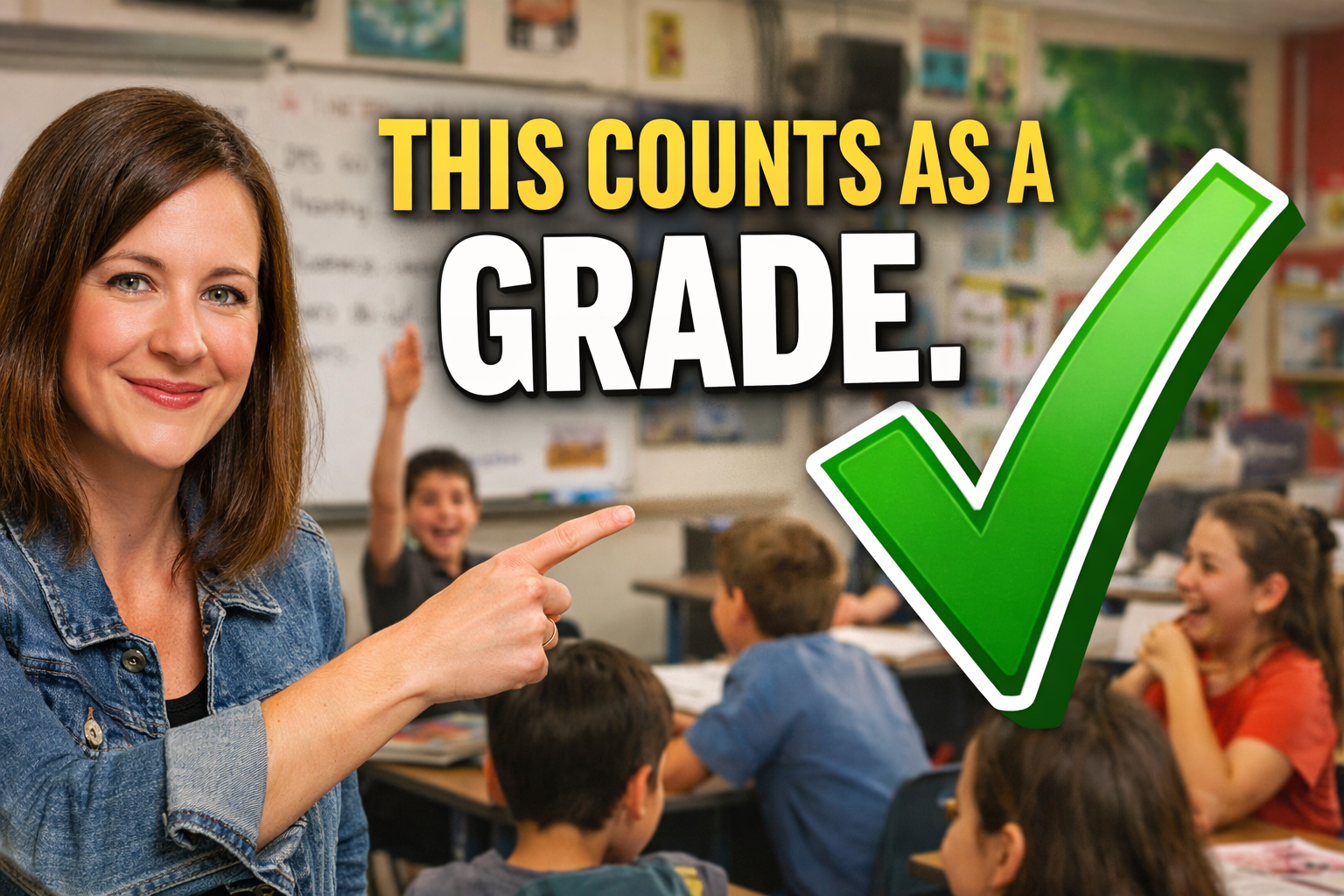
Do you struggle assessing interpersonal speaking?
Let's face it, we all do from time to time.
But I'm here to give you some tips so that you can quickly and easily assess interpersonal speaking in your language classroom starting tomorrow!
Weekly Conversations
The first step is to engage your students in weekly conversations in the target language.
I like to have one day a week dedicated to some sort of interpersonal communication. For me, this is usually Mondays.
Mondays work really well because it's a low-key way to get students into the language after the weekend and it's a fun way to engage students and get them warmed up for the week.
What do we talk about? Just about anything goes as long as it's in the target language.
You can talk about the weekend, ask students random questions, or just engage students in small talk— talk you'd have at a party or around the lunch table.
Weekend Talk gets boring for me and my students after a while. I generally only do Weekend Talk once a month or once every six weeks.
Noticing students as they enter the classroom can generate some great talking topics. Do they have a new haircut, are they wearing new shoes, are they dressed up for some occasion, did they just win their last sporting event, spelling bee, or math olympics? Any of these are great topics for discussion and because they are highly personalized, they are highly engaging for students.
My favorite way to engage students in conversation is using random, off-the-wall questions. Because students never know what to expect with these questions, they cannot prepare for them or use memorized phrases. They have to think on their feet and use real language.
Here is a list of conversation starters that I use.
The purpose of interpersonal speaking is NOT to work on vocabulary or grammar, but to get to know your students through the target language.
I know it's easy to fall into the trap of using conversations to teach new vocabulary or new grammar, but kids will know what you're doing right away and won't engage. But if they realize there's no ulterior motive and that you're just having a conversation, they are more likely to stay involved in the conversation. So resist the urge to try to TEACH something during these conversations and work solely on getting to know your students for who they are.
The key to this process is knowing that any conversation can be an assessment.
Any conversation you have with a student in the target language is potentially an assessment. I let students know this in the beginning of the year. I tell them that any time we are speaking in the target language, I can use that to make an evaluation on their speaking ability.
How do I keep track of this?
I have small flashcards that I make in Google Docs with each student's name on it on one side and blank on the other.
I print these out on colored card stock, one color per class. I use them like popsicle sticks to randomly call on students.
I can randomly call on students using the cards and keep track of who I've called on and who I haven't easily with these small decks of cards.
Here's my Google Doc Name Template if you'd like to use it.
Grading
Using a rubric, I mentally assess the students speaking ability and note it on the back of their card.
The key to this is to know your rubric.
If you pull out the rubric while the student is speaking, you're going to scare them and raise their affective filter.
Plus, knowing your rubric makes it easier to mentally assess and mark down the grade on the card without having to always reference the actual rubric.
I average every 3 grades together for a speaking quiz grade.
Kids are assessed randomly over the grading period, but once the student has at least 3 interpersonal speaking grades, I'll average them together to give one interpersonal speaking grade.
Here's a simplified version of the rubric I use:
A = answers questions + adds to conversation
B = answers questions + sustains conversation
C = answer questions only
D = difficulty answering questions
F = unable to answer questions
Remember not to surprise your students.
Let them know that any conversation can be potentially assessed so they are not caught off guard.
If you know it's a bad day or if a student's grade is unusually low, skip marking it down and wait for another day.
So there you have it. That's how I quickly and easily assess interpersonal speaking in my classroom. Try it and let me know how it goes in the comments below!
Wanna learn more?
Check out our webinar on Crazy Convos!
Or watch our FREE LIVE! Replay on Conversations!



